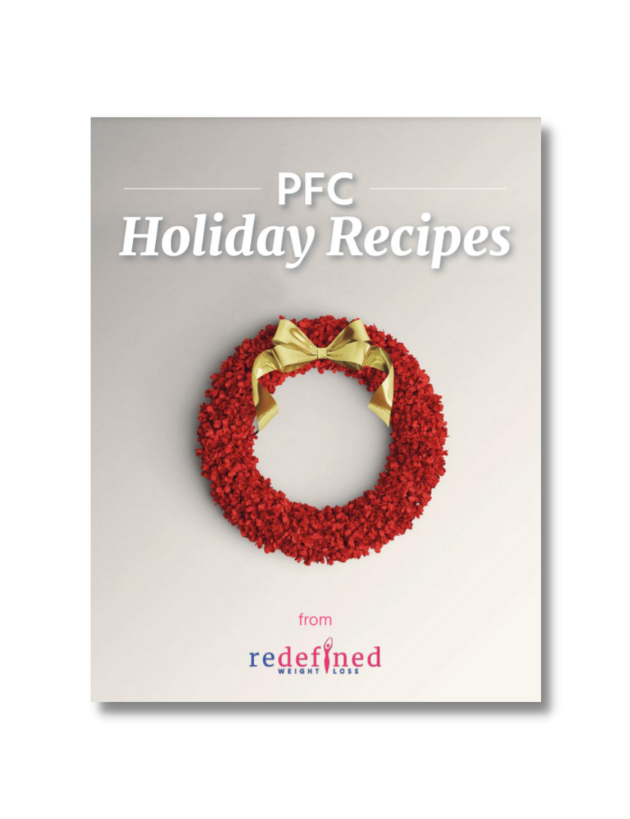You’ve tried everything to lose weight.
- Not just exercising, but every kind of exercise—running, lifting, yoga, Pilates, CrossFit.
- Not just dieting, but every kind of diet—Weight Watchers, Atkins, vegetarian/vegan, Paleo, low carb, SlimFast, Beachbody.
- Not just supplements—but hundreds of dollars of pills, powders, shakes, you name it.
- Not just self improvement, but every kind of self improvement—meditation, prayer, deep breathing, affirmation, self love.
Then why is it STILL not working?
You’ve followed the rules. You’ve read the blogs. You’ve bought the supplements. Cooked the food. You feel you should be able to figure this out.
But you haven’t. And it frustrates and exhausts you to no end. It doesn’t seem fair.
Your hormones could be to blame.
My team of Dietitians and I see clients just like you—people who are seemingly doing everything “right” and yet they aren’t seeing the fat loss they want. I know how frustrating it is to work so hard and not see results on the scale or in the mirror!
That’s why we always look deeper in our 1-1 coaching—beyond just food, calories, and exercise. We know that the real answers lie in the commonly overlooked factors (many of which I share with you in my #1 bestselling book.)
One key that has been a huge “a-ha” for both myself and our clients, is hormones!
When your hormones are in harmony, your metabolism is supported and you feel amazing—you’re energized, in control of your moods, your cravings fade away, and you’re ready to conquer the world!
On the flip side, when they’re out of balance, you feel exhausted, out of control, and your metabolism tanks. (And that’s when it seems impossible to lose weight, or worse—you gain weight.)
4 Key Hormones and How to Keep ‘Em Balanced:
1) Insulin. You can think of insulin as your master hormone because when insulin is at work, the activities of other major hormones are suppressed. When insulin plays its trump card, all other hormones step out of the way. Insulin’s main job is to store fat, which is why it’s important to keep insulin’s workload as light as possible. When insulin is working hard, you’re packing on more pounds.
How to keep insulin on the sidelines: Keep your blood sugar levels stable to keep insulin levels low…or else insulin takes over the show. Do this by eating in PFC balance to stay off the blood sugar roller coaster that drives insulin (and your weight) up.
2) Cortisol. Cortisol (also known as your “stress hormone”) is one of the most important hormones in your body because without it, you couldn’t handle stress. It regulates your “fight or flight” response, and exists as a survival mechanism—it is triggered when you are in danger and is meant to be released in small doses and for short lengths of time. It serves its purpose when you need to kick into high gear. It increases your blood sugars and blood pressure. You can thank cortisol for the surge of energy you get when you are being chased by a tiger. Because cortisol causes your blood sugars to rise, any time you are stressed out, you have elevated blood sugars, so it’s as if you’re eating high amounts of sugary foods all day long. As we just discussed, this causes insulin—your fat storing hormone—to come out to do its job of transporting sugar from your bloodstream to your cells to be stored as fat. And, well, you see where that can lead. This is how you gain weight when you’re stressed…independent of your nutrition…without even eating any more, less, or differently!
How to keep cortisol balanced: Manage your stress. I know…easier said than done. But the reality is that stress is the enemy of a balanced hormonal system. In short, when your body is stressed, it shifts its resources to make cortisol, your stress hormone, and and other hormones such as the sex hormones, like estrogen and progesterone, suffer. (That explains why you might notice a low sex drive when you’re stressed out.) Take time out to deep breathe, go for a walk, journal for a few minutes, talk to a counselor, take stress-reducing supplements, and make it a priority to keep your stress in check.
3 and 4) Estrogen and Testosterone. These are BIG ones. Estrogen is what we often think of as our female hormone and testosterone our male hormone. A lot of people don’t realize that both sexes have both hormones, and that estrogen dominance can occur in both men and women. Testosterone tends to be converted into estrogen when men and women gain weight, and problems arise when estrogen levels are out of balance. This can easily happen when we are under stress, eating processed foods, consuming soy, not getting enough sleep, taking hormones (like the birth control pill), and also when we’re exposed to estrogen-like compounds found in plastic and styrofoam. These problems continue to pile up if we aren’t doing anything to eliminate the negative effects. When estrogen levels are too high, we see an increase in the prevalence of breast cancer (in both women AND men!), infertility, low libido and weight gain. Women specifically can suffer from endometriosis, excessive PMS, perimenopausal and menopausal symptoms when their hormones are out of whack.
Grab my free guide that elaborates on Tip #3 here!
How to keep estrogen and testosterone balanced: Eating balanced is an important first step, and as important as it is, I’ve found from working with our clients that food just isn’t enough when it comes to keeping estrogen and testosterone levels balanced.
That’s why I formulated Estro Bal Redefined for women. It promotes hormone balance by featuring targeted nutrients that support healthy estrogen metabolism and detoxification to keep estrogen levels where they should be. Estro Bal Redefined doesn’t contain any synthetic hormones—instead it helps your body balance its own estrogen levels naturally.
Here’s what Madeleine has to say about Estro Bal Redefined:
“Estro Bal Redefined has helped with my mood swings, aches and cramps during my cycle. I was able to run a half marathon the morning my cycle started with the help of this supplement taken on a regular basis. So glad I was introduced to this product!” -Madeleine B.
Implement these tips to get your hormones on track, and download my free hormone balancing guide below:











